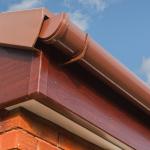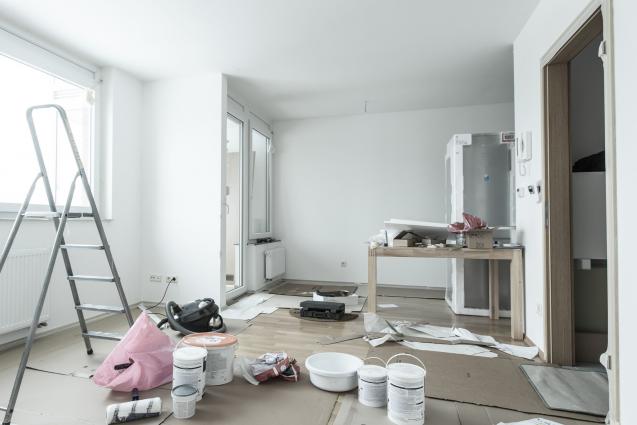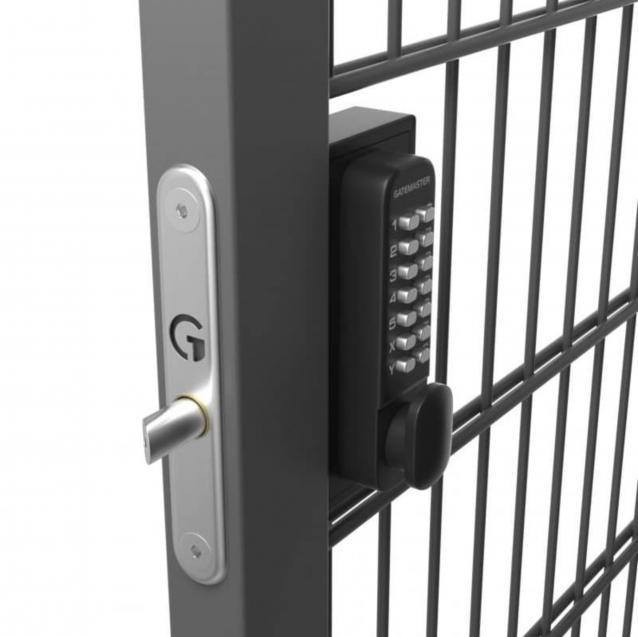
The Ultimate Guide to Roof Plumbing
By White Chalk Road|September 21, 2023
Whether you're building a new house or giving your existing one a face-lift, one aspect that often goes unnoticed but is absolutely crucial is roof plumbing. This often-overlooked field plays a vital role in maintaining the structural integrity of your home, protecting it from the relentless forces of nature.
Our team of roof plumbing experts have worked on enough emergency plumbing jobs for both residential and commercial clients to have the knowledge for this comprehensive guide. We’ll delve into roof plumbing, the potential problems that can arise from neglecting your roof, and the best ways to ensure your roof plumbing is up to par.
What Is Roof Plumbing?
Roof plumbing encompasses a wide range of activities, including installing, repairing, maintaining, altering, and renovating roof flashings, gutters, and roofings on different types of buildings. Its primary goal is to prevent water damage on your roof, ensuring it remains robust and resilient over time.
Roof plumbing also includes installing and maintaining elements like ventilators and skylights, which are often overlooked but essential for proper ventilation and natural lighting in your living spaces.
Meet the Roof Plumber
A roof plumber, sometimes referred to as a metal roof plumber or steel roofer, is a highly skilled specialist trained to handle various aspects of roof plumbing. They're responsible for installing metal roofing, managing roof coverings, handling guttering, and overseeing drainage systems. Unlike regular plumbers who deal with water distribution and drainage within the home, roof plumbers are experts at directing rainwater away from your roof.
One key distinction lies in their training. Roof plumbers require specialised training, including expertise in working at heights and stormwater management, which isn't typically part of a standard plumber's skill set.
Consequences of Neglected Roof Plumbing
Neglecting your roof plumbing can have dire consequences for your home. Stagnant water accumulating on your roof can compromise the roof's integrity and your home's foundation. Here's why:
Signs of Poor Roof Plumbing
Early detection of roof plumbing issues can save you from costly roof repairs and structural damage. Keep an eye out for these warning signs:
When Should You Hire a Roof Plumber?
Understanding when to call in a roof plumber is an essential part of maintaining your home's overall health. Here are scenarios where their expertise is indispensable:
Why Choose a Roof Plumber?
Choosing the expertise of a professional roof plumber can make all the difference in maintaining a safe, comfortable, and structurally sound home. Opting for professional roof plumbing services is essential for several reasons:
Choosing a Competent Roofing Plumber or Contractor
Selecting the right roofing plumber or contractor ensures your roof plumbing system remains in top shape. Here's how to make the right choice:
Trust Tunnel Vision for Your Roof Plumbing Needs
If you're seeking professional roof plumbing in Perth, trust Tunnel Vision to keep your property safe. Don't wait for roof problems to escalate; safeguard your home with the help of our dedicated roof plumbers.
Our experienced team of qualified roof plumbers are also able to help with various other plumbing services, such as water leak detection, pipe relining, and blocked drain repairs. Contact us today to find out more about our quality workmanship in both residential and commercial plumbing!
Our team of roof plumbing experts have worked on enough emergency plumbing jobs for both residential and commercial clients to have the knowledge for this comprehensive guide. We’ll delve into roof plumbing, the potential problems that can arise from neglecting your roof, and the best ways to ensure your roof plumbing is up to par.
What Is Roof Plumbing?
Roof plumbing encompasses a wide range of activities, including installing, repairing, maintaining, altering, and renovating roof flashings, gutters, and roofings on different types of buildings. Its primary goal is to prevent water damage on your roof, ensuring it remains robust and resilient over time.
Roof plumbing also includes installing and maintaining elements like ventilators and skylights, which are often overlooked but essential for proper ventilation and natural lighting in your living spaces.
Meet the Roof Plumber
A roof plumber, sometimes referred to as a metal roof plumber or steel roofer, is a highly skilled specialist trained to handle various aspects of roof plumbing. They're responsible for installing metal roofing, managing roof coverings, handling guttering, and overseeing drainage systems. Unlike regular plumbers who deal with water distribution and drainage within the home, roof plumbers are experts at directing rainwater away from your roof.
One key distinction lies in their training. Roof plumbers require specialised training, including expertise in working at heights and stormwater management, which isn't typically part of a standard plumber's skill set.
Consequences of Neglected Roof Plumbing
Neglecting your roof plumbing can have dire consequences for your home. Stagnant water accumulating on your roof can compromise the roof's integrity and your home's foundation. Here's why:
- Roof Damage — Stagnant water can cause your roof to sag over time, leading to structural issues that require significant roof repair.
- Foundation Damage — Pooled water around your home's foundations can damage the foundation itself, resulting in costly repairs.
- Structural Damage — When water in the roof leaks into bricks and weatherboards, it can compromise the structural integrity of your home.
Signs of Poor Roof Plumbing
Early detection of roof plumbing issues can save you from costly roof repairs and structural damage. Keep an eye out for these warning signs:
- A Leaking Roof — This is one of the most obvious signs that your roof plumbing should be checked as soon as possible. Regular inspections every six months can help you catch issues before they escalate.
- Stained Ceilings — Water accumulation from a leaky roof can cause stains on your ceiling, potentially damaging the plaster and posing structural risks.
- Mould and Mildew — Poorly maintained roof flashing, gutters, and spouts can foster the growth of mould and mildew, compromising indoor air quality and presenting an unsightly issue.
- Blocked Gutters — Cracked, damaged, or clogged gutters can lead to water buildup, damaging your walls, ceilings, and fixtures. Regular cleaning or replacement may be necessary.
- Structural Damage — Weakened or rotting wood in the foundation suggests water has seeped into the structure, endangering your home's structural integrity.
When Should You Hire a Roof Plumber?
Understanding when to call in a roof plumber is an essential part of maintaining your home's overall health. Here are scenarios where their expertise is indispensable:
- New Building Projects/Roofing — Roof plumbers plan and carry out roofing projects for new constructions. They help determine the right materials and tools and oversee roofing.
- Roof Flashing — Roof plumbers ensure roof penetrations are properly flashed to prevent leaks. They use materials like polycarbonate, glass, malthoid sheets, metal, fibreglass, and polycarbonate to secure roof structures.
- Roof Drainage Systems — Roof plumbers design and install roof drainage systems, including rainwater and stormwater systems, to ensure efficient water management.
- Roofing Fixtures — They measure, construct, and position various roofing fixtures like gutter pipes, roof safety installations, water tanks, and roof mesh. These installations may include linking rainwater tanks to stormwater drainage systems or setting up household plumbing to utilise harvested rainwater.
- Roof Maintenance and Short-Notice Plumbing — In cases of roof damage or emergencies, roof plumbers are skilled in performing repairs and installations swiftly.
- Gutter and Spout Maintenance — Regular maintenance and repairs of gutter systems fall under the purview of roof plumbing contractors.
Why Choose a Roof Plumber?
Choosing the expertise of a professional roof plumber can make all the difference in maintaining a safe, comfortable, and structurally sound home. Opting for professional roof plumbing services is essential for several reasons:
- Prevents Water Accumulation — Roof plumbers ensure water flows efficiently from your roof to downpipes, preventing stagnant water that can lead to mould, mildew, and structural damage.
- Safeguards Your Health — Mould growth from water damage can pose health risks. Roof plumbers help maintain a dry, healthy indoor environment.
- Prevents Electrical Risks and Fire Hazards — Leaks from blocked drainage systems and roof plumbing issues can pose fire and electrical hazards, which professionals can address and rectify.
- Protects Insulation — A well-maintained roof plumbing system preserves the insulation in your home, ensuring energy efficiency.
Choosing a Competent Roofing Plumber or Contractor
Selecting the right roofing plumber or contractor ensures your roof plumbing system remains in top shape. Here's how to make the right choice:
- Experience and Expertise — Look for a plumbing team with extensive expertise, experience, and skills. Experienced professionals can identify issues, offer solutions, and advise on preventive measures like gutter cleaning schedules.
- Safety First — Ensure that the roofing service provider follows safety guidelines and adheres to the most up-to-date roofing codes and regulations applicable in your area.
- Licensing and Training — Confirm that your plumbing service provider has the requisite roof plumbing licences, training, and registration. For example, the roofing plumbing contractor should be authorised to work on residential buildings.
- Specialised Training — Roof plumbers should have completed specialised training, such as Certificate III in Roof Plumbing. This comprehensive program covers various essential aspects, including handling roofing materials, safe procedures for working on metal roofs, welding techniques, installation of flashings, understanding roof drainage systems, expertise in roof coverings, and proficiency with composite roof systems.
Trust Tunnel Vision for Your Roof Plumbing Needs
If you're seeking professional roof plumbing in Perth, trust Tunnel Vision to keep your property safe. Don't wait for roof problems to escalate; safeguard your home with the help of our dedicated roof plumbers.
Our experienced team of qualified roof plumbers are also able to help with various other plumbing services, such as water leak detection, pipe relining, and blocked drain repairs. Contact us today to find out more about our quality workmanship in both residential and commercial plumbing!



